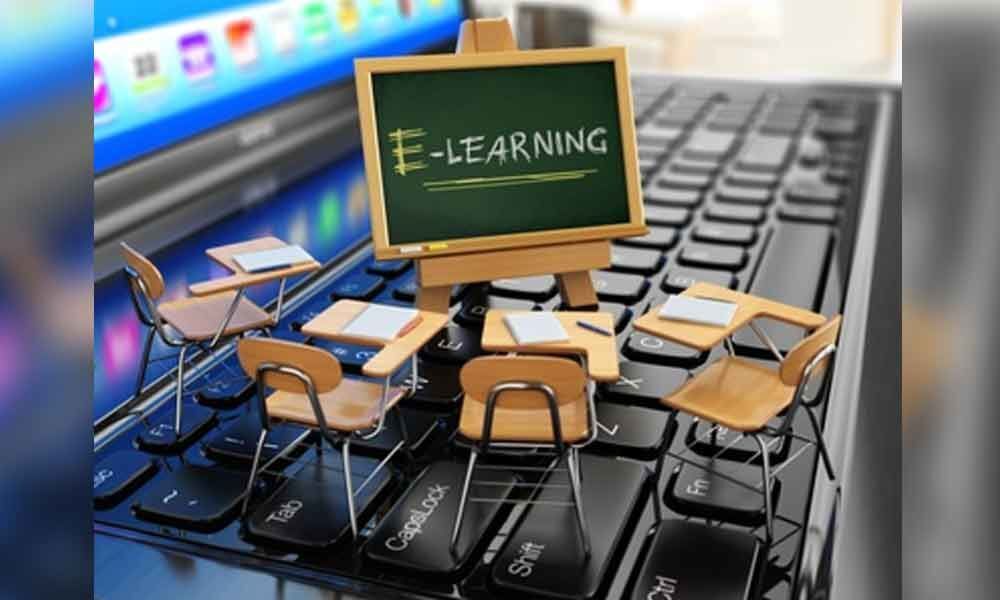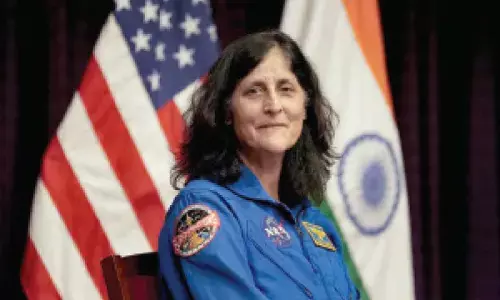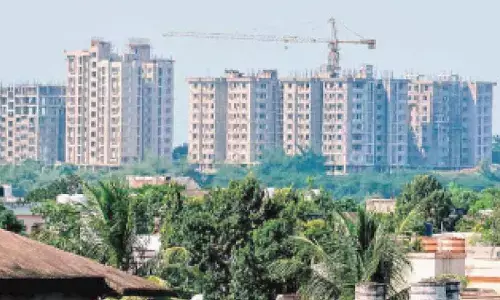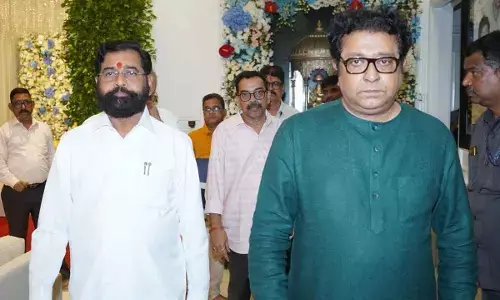Virtual classrooms fail to take off in many schools

Lack of power and internet connections turn out to be big impediment
Nellore: Declarations of providing digital classrooms to students of government schools in remote areas remained an empty talk as teachers and officials find it difficult to obtain internet connection even in the age of digital era.
Digital education has gained significance in education with virtual classrooms where the pupils rely on technology-based gadgets, advanced teaching methods that make the environs live and interactive.
Teaching with a blackboard, piece of chalk is now a thing of past, and teachers have shifted to projectors, DVD players and eLearning methods to display tutorial videos and hold short sessions to help the students understand that learning can be fun and interactive.
Many schools now have a TV or a projector attached to their blackboard where it is easy to shift from a normal classroom session to an interactive digital session.
This will make students pay more attention to subject. Equipping the students to be updated with subject-related topics is the best way to teach students to grow as a person.
The state government introduced the concept of virtual classroom programme in 2017-18 and selected 298 high schools in the district for implementing the digital sessions.
An amount of Rs 26 lakh was also sanctioned for a studio at the District Institute of Education and Training (DIET) located in Pallepadu for transmitting the programmes. Each selected school has been provided Rs. 3-4 lakh worth equipment for the purpose.
The studio at DIET has been equipped with sophisticated equipment for conducting virtual classes and all the schools have been supplied with a projector, laptop, big screen, speakers, and air-conditioners for the convenience of the students.
They enjoy classes of expert teachers and ask questions for clarification if they have any doubts, as per the system intended for the interactive session.
However, the scheme remained a non-starter in several schools as some of them have no power, and some no internet facility for connecting to the studio.
Though lessons taught in the studio are automatically transmitted to all digital classes in the selected schools across the district through the screen, only around 80 schools out of 288 are getting digital classes for students of Classes 6, 7 and 8, being transmitted from Krishna, East Godavari and other districts since the studio in the district has not yet been completed.
The remaining 218 schools have only traditional classes with blackboard and chalk having failed to upgrade due to lack of internet.
"It is true that the state government provided funds for the studio and also for well-equipped classrooms. But who will take responsibility for day-to-day technical issues, electricity bills, connecting to the Fibergrid and signal issues?
We are already facing connection issues for the biometric attendance system. The education department has to organise a meet in the presence of district collector on school-wise issues for resolving them instantly," said a senior headmaster from Gudur mandal.
A senior official from the education department said that works of studio at Pallepadu are still going on and they would implement the programme from the next academic year.




